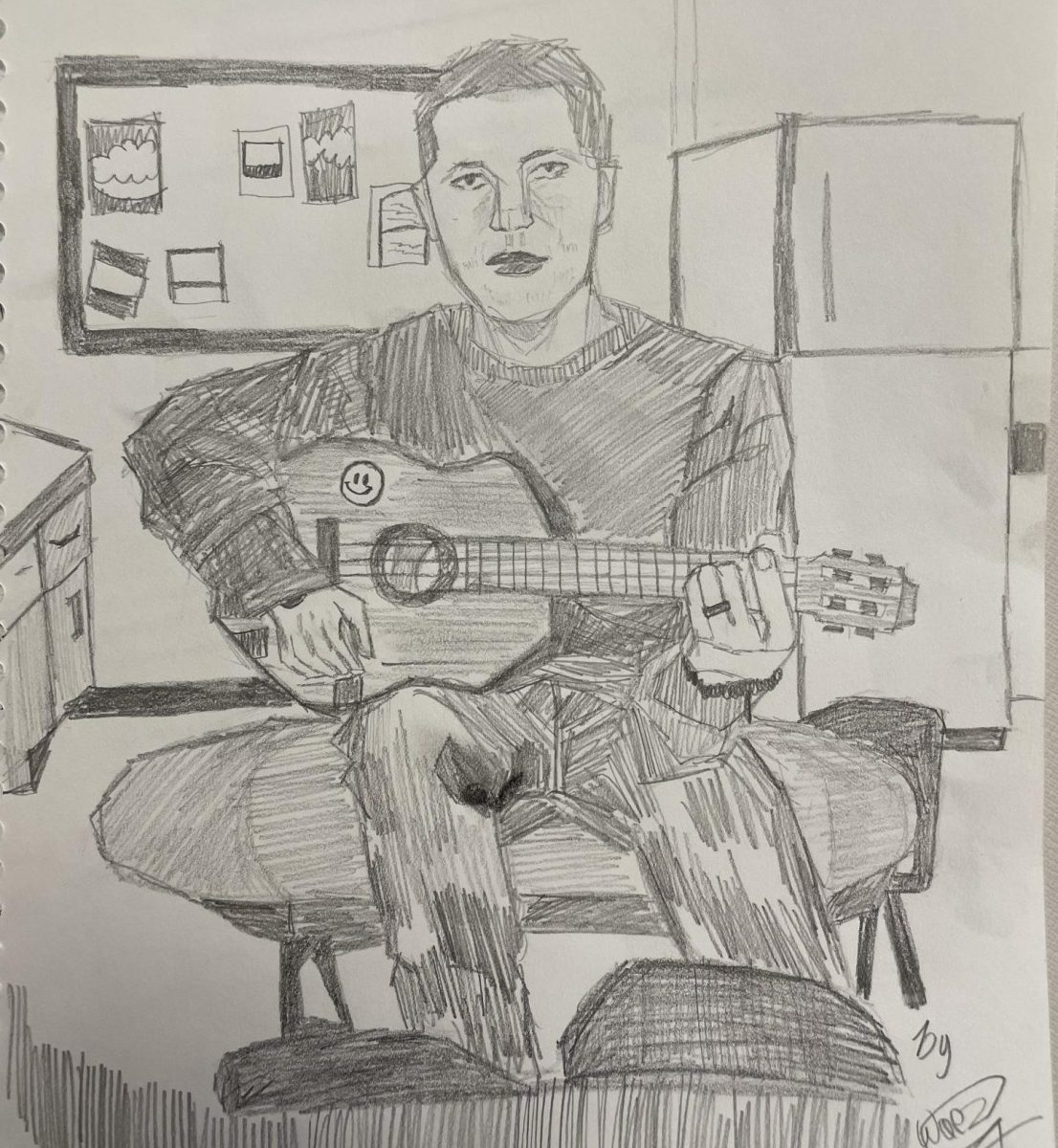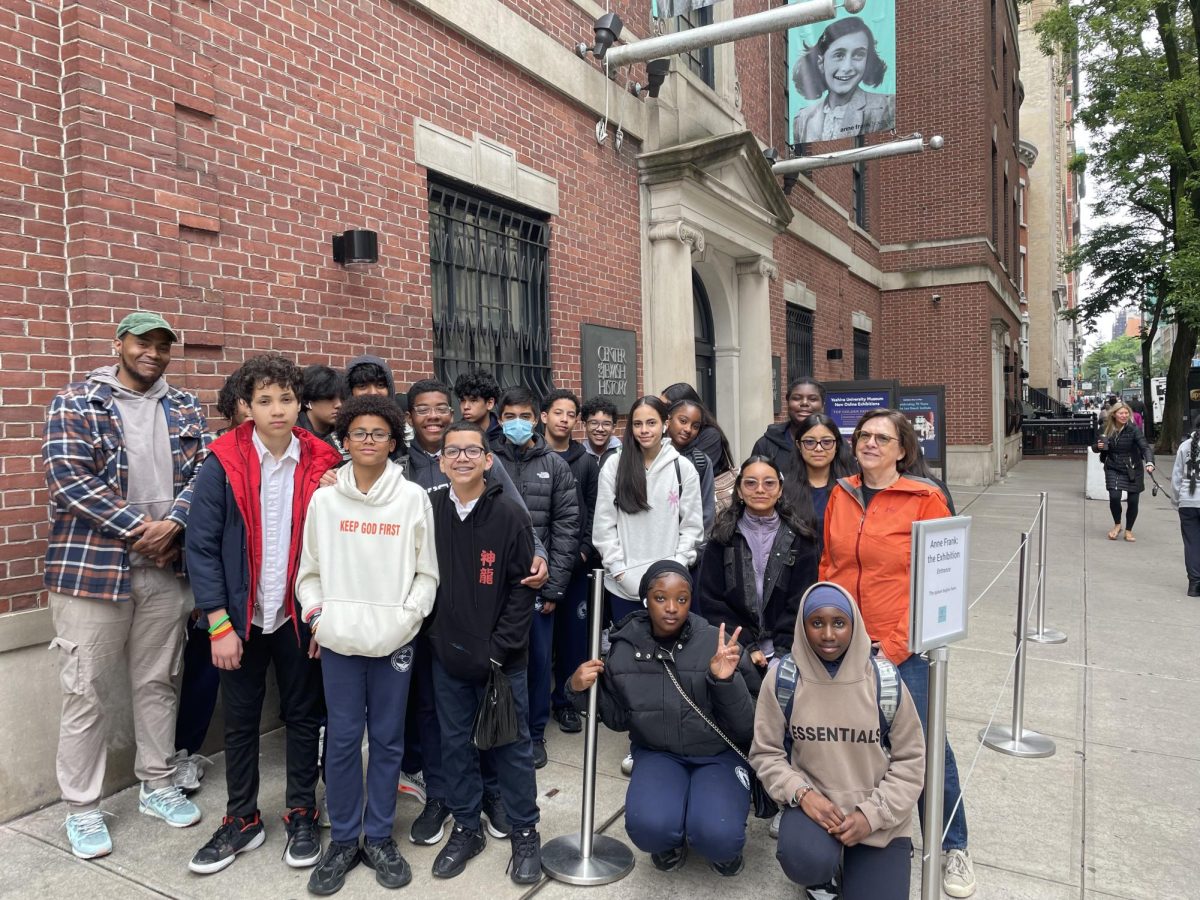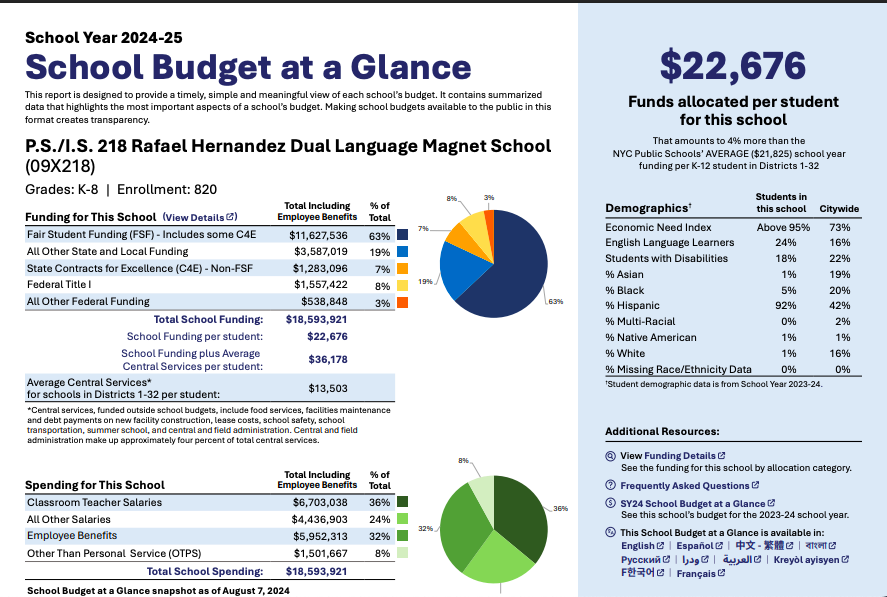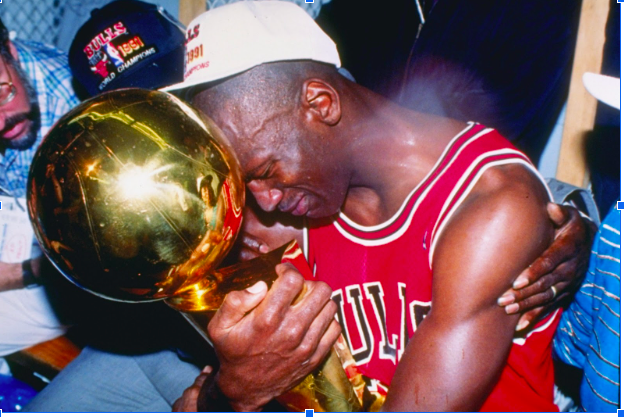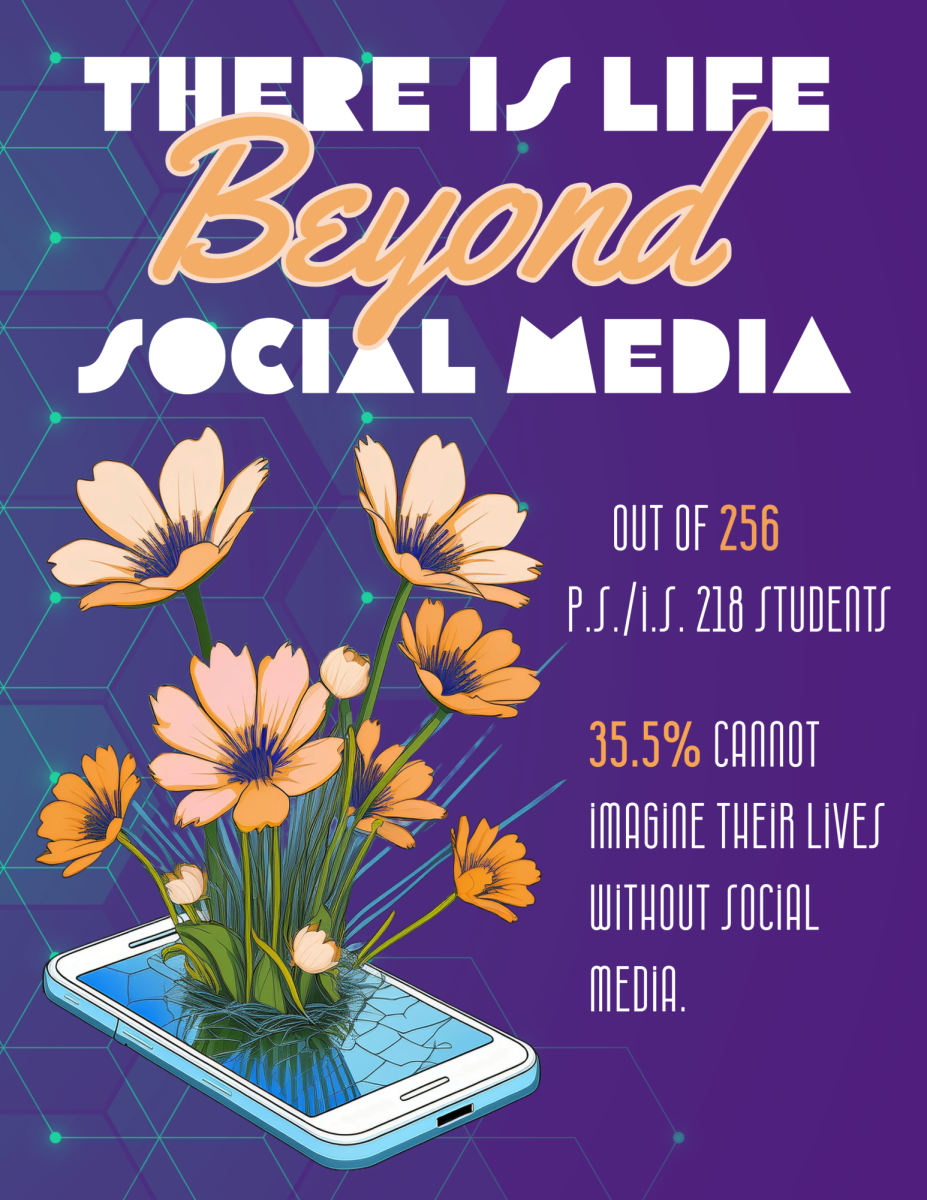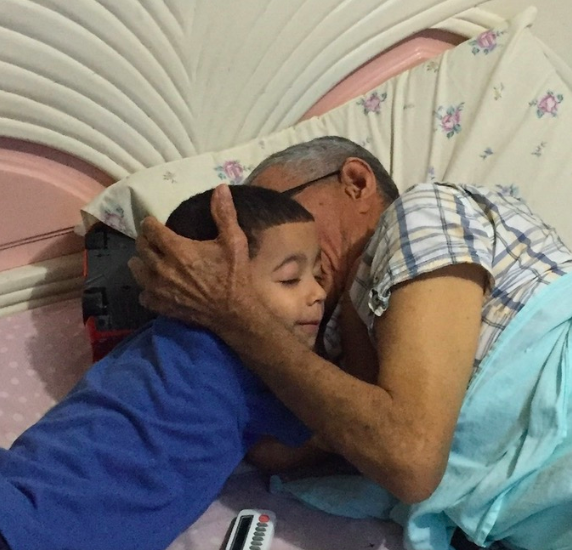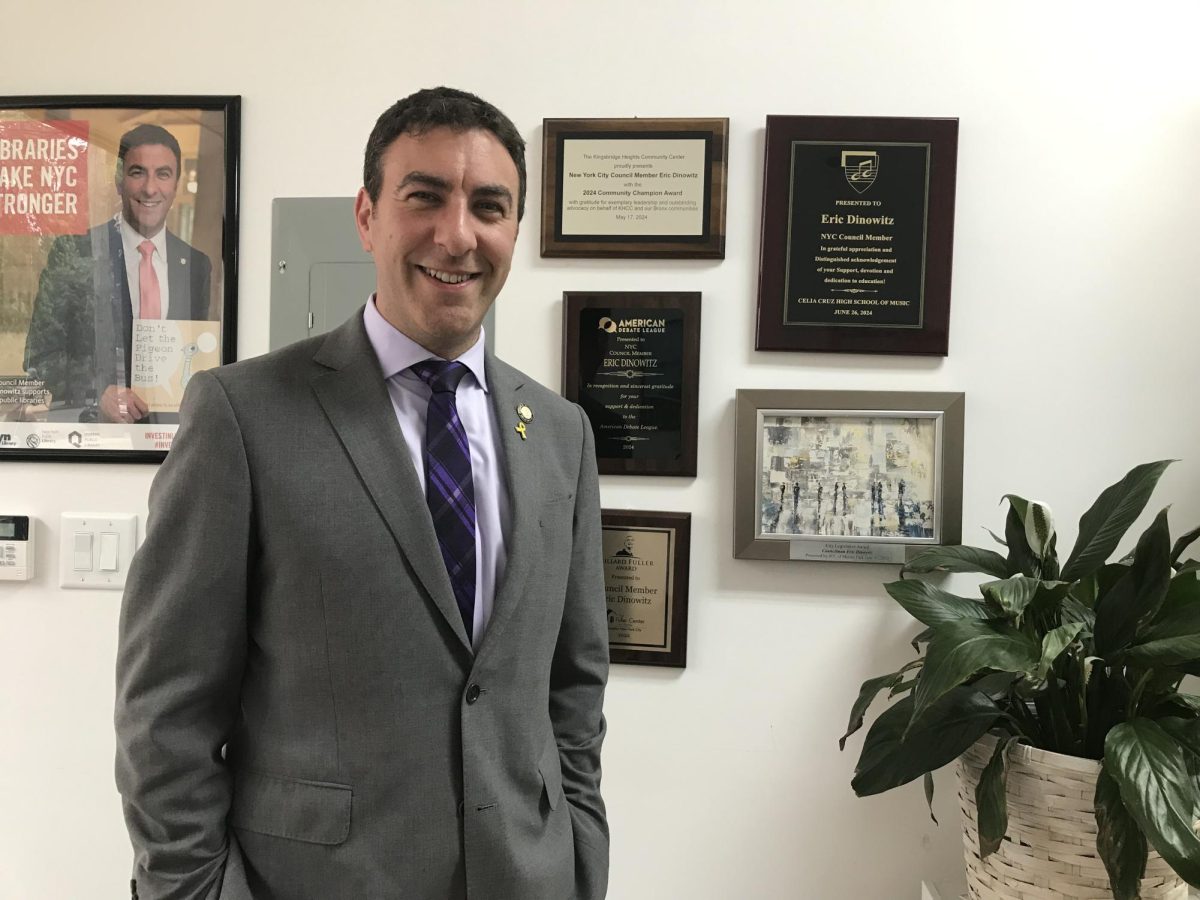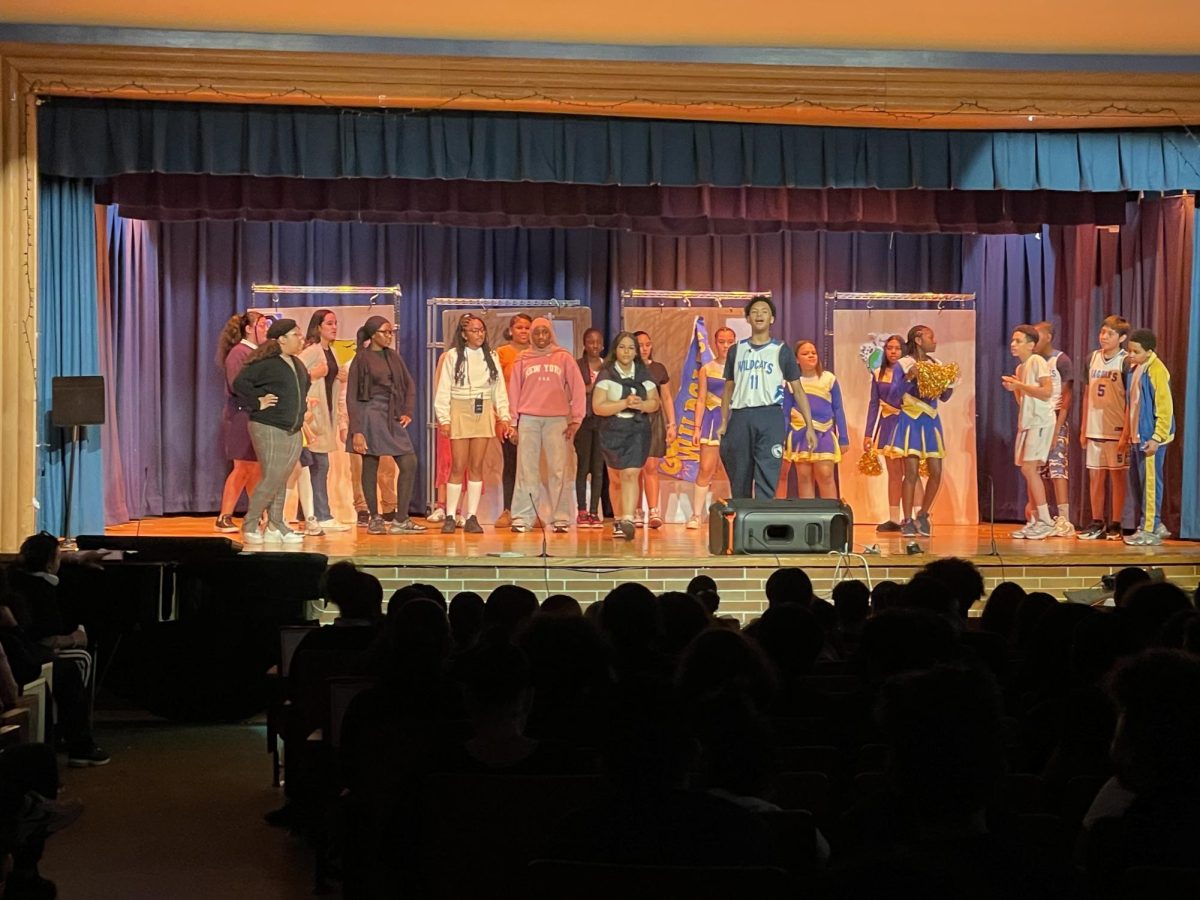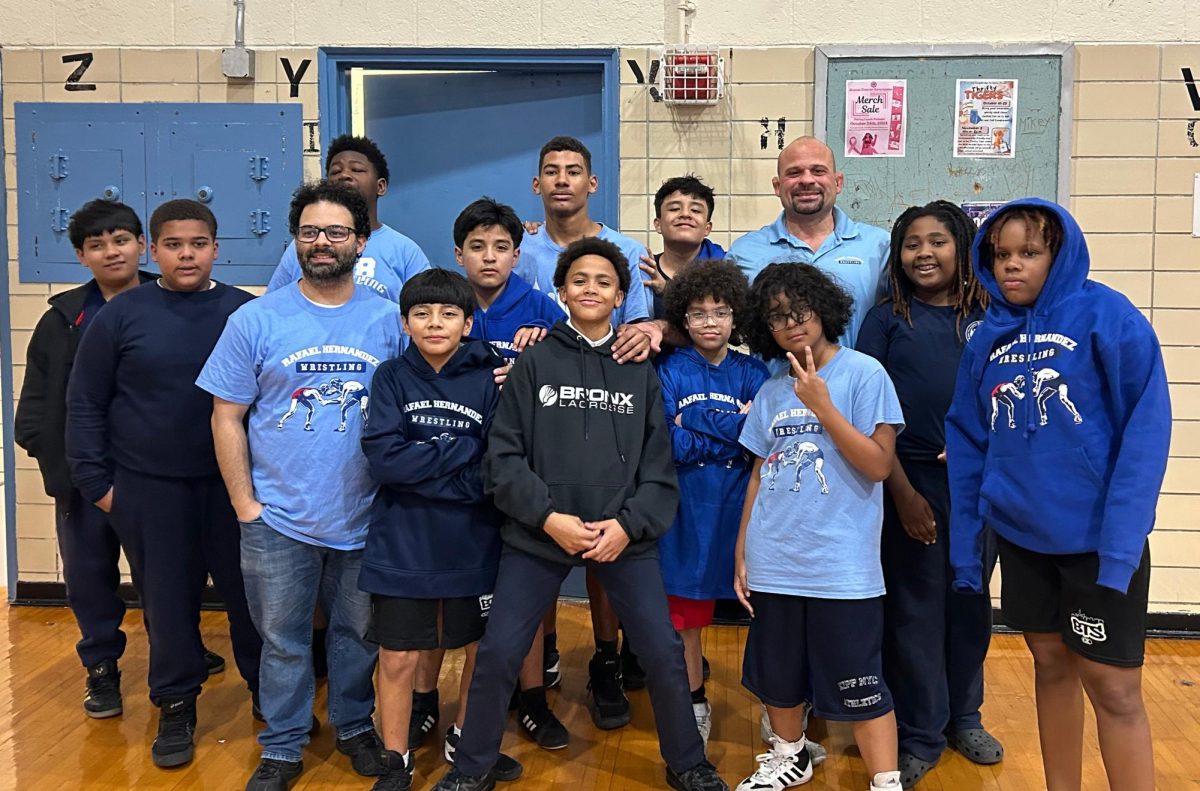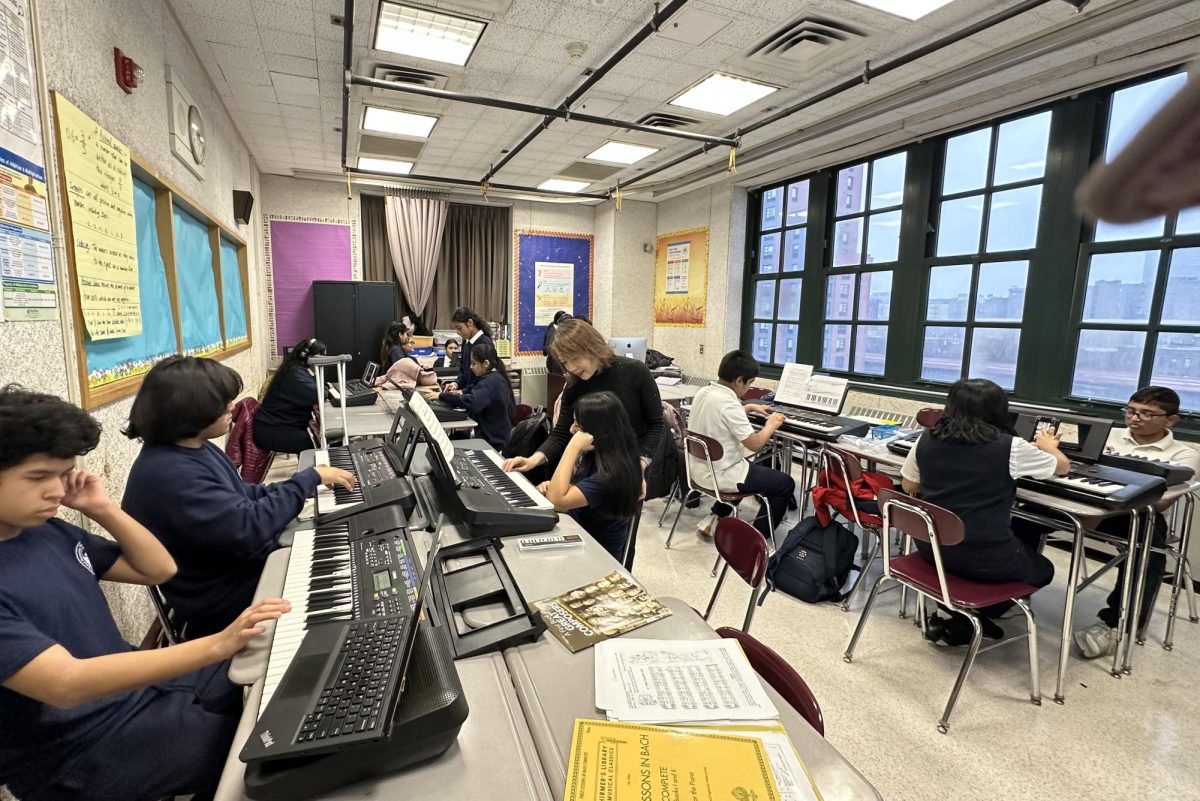He stands up straight, wearing his grey suit and striped tie, accompanied by a smile that shines more brightly when he’s in a classroom. Through the laughter and chatter of work from the staff, a sense of tranquility roamed throughout the room as he then called for me to walk into his office. When he sat down at the upper end of the table and began to speak, his eagerness to get to know me was expressed through his words. In that moment, he wasn’t simply a man in politics; he was a person who wanted to learn about the lives of his constituents, the people who make a community function as a whole.
Council Member Eric Dinowitz grew up with a father in politics, and from a young age, he saw the impact of the government on the people. His journey began when he started working as a special education teacher at the John F. Kennedy High School, in the Bronx, NY, where he soon realized that the student’s lives outside the classroom impacted their performance in school. Dinowitz said, “Sometimes it was school policy on things like curriculum and IEPs (individualized education programs); other times, it was food insecurity, safety, healthcare, and housing. So if I wanted to help my kids, I did a little more outside of the classroom. Eventually I ran for office, and I’ve been helping the community, including kids, ever since.”
During early 2021, Dinowitz was elected to represent District 11 in the City Council, throughout a time in which the city was still combating Covid-19. District 11 encompasses a diverse area in the northwest Bronx, including the neighborhoods of Riverdale, Kingsbridge, Bedford Park, Norwood, Wakefield, Woodlawn, and Van Cortlandt Village. In his first few months as a council member, he opened vaccine sites, new food distribution sites, and saved a garden and a farmers market from being torn down. He additionally brought in between 15 and 16 million dollars in investments for schools, parks, and hospitals in the district. Dinowitz acknowledges that, “Despite the pandemic, despite being brand new to the job…[…]…we kept a lot of people healthy and safe, and our district got the investments needed on Day 1.”
As a council member, he didn’t forget about his students; instead, they inspired him to create legislation that advocated for their education and their accessibility to it. An issue he noticed was that a lot of his IEP students, who were in college, said that they needed their assessment data as proof to justify their accommodations. He realized, “Why isn’t the DOE just sending this information to the colleges? So, we passed a law, I believe it’s the first of its kind in the nation, that says that the DOE has to create a program that electronically transmits IEP and assessment data to the student’s college.” Additionally, in the NYC budget for fiscal year 2026, Dinowitz is advocating for CUNY programs, such as ASAP, ACE, and Reconnect. He believes that investing in CUNY is the vehicle through which students can succeed and provide for themselves and their community. He also views it as a good return on investment because “when someone has a degree, they’re earning more money, that’s good for the tax base, and they’re not on public assistance, which is good for our economy.” Dinowitz said
Dinowitz is also addressing food insecurity throughout District 11 by opening additional food distribution sites and investing in community partners like Common Pantry. He also ensures that people in the district have access to healthy foods by providing them with Health Bucks, which are $2 vouchers that people can use at a local farmers market. At the same time, he believes that “education is a critical component of this in terms of food security and health.” During his time as a teacher, he would bring students to the school garden to grow food and eat it afterwards to help them learn about healthy eating practices.
He never has a workday that is the same as the day before, yet there are two questions he constantly keeps in mind every day: “How can I help people?” and “How can I make sure I know what’s going on in the city in order to be in service for the people I represent?” These questions are the steering wheels of his job as a council member. On the day of our interview, his day began by touring a waste facility. Then, he visited a local elementary school in Wakefield, where he and the school’s students celebrated getting new water fountains in less than a month. Later on, he got on a call with stakeholders (individuals, groups, or organizations that have an interest or concern in government activities) to discuss the best way to support an NYC student who’s being detained by ICE, as well as other students who are in fear of being deported or detained. Afterwards, he spoke at a graduation ceremony for a community college and came back to his office to have a budget meeting with Bronx Borough Manhattan Community College. Then, he had an interview with me. Lastly, he planned to do some campaign work and conclude his day by attending a community board meeting. As for the following day, he had to go to City Hall for votes.
These days, Dinowitz has been working towards the 2025 NYC Council elections. So, when he thinks about how he can improve for reelection, “it’s always worth reflecting, ‘How can I do better?’ So that’s just a question I always ask for everything, from the way I pass legislation to a movie night we had last week in the community, where a ton of people came, and I want even more people to come and celebrate and build the community,” Dinowitz said.
He also emphasized the importance for constituents to contact their council members about any problems they’re experiencing because “not a single person in government is ever going to experience every single thing that their constituents experience. For all things you are, at the end of the day, everyone has their own story, everyone has a different belief, different housing situation, race, religion, all those things, so our job is to listen and help as many people as possible and empathize with people,” explained Dinowitz.
Council Member Eric Dinowitz’s final advice for anyone who has the desire to create an impact in their communities is “to not stay silent, to advocate, and to do it with a coalition because that’s the way we get things done.”

